Follow us (and like us!) at Apple Podcasts or wherever you listen to your favorite podcasts, and follow us on Twitter. Also please subscribe to The Ankler at TheAnkler.com for more podcasts and stories like these about the entertainment industry.
Exciting news today at The Ankler: TV writer Rob Long of the Martini Shot podcast, a staple of NPR for decades, is bringing his show under The Ankler umbrella, with new episodes posting every Wednesday on The Ankler feed.
To those who don’t know, the “martini shot” is what the last shot of the day on a production is traditionally called (before one, ostensibly, goes off to have a martini). To kick off the Martini Shot podcast’s new home, Long joins host Richard Rushfield today to discuss — what else? — the state of the industry as streaming assumptions are being upended and old-fashioned linear TV is getting a second look as an industry suddenly searches for answers (and profits).
Long was a longtime writer on Cheers, the hit NBC series that ran for 275 episodes from 1982-1993. Its story is one of legend. The show’s premiere rated 74th out of 77 shows and the series was almost canceled. But by the end, its season finale became the most watched single episode of TV during the 1990s, with 93 million people tuning in (40 percent of the population then). It also created a huge downstream market for its library through syndication (all 11 seasons now stream on Peacock). It also earned 28 Emmys and 117 nominations. Regularly, the series would get between 20-30 million viewers.
But that was then, and this is now. In this episode, Long talks about the fates and fortunes of today’s TV writers and the business overall as streaming’s great hopes have taken a beating.
Some highlights:
The Economics of Old TV
“The theory was that when a show went into syndication, the first run shows would take a hit. Like, ‘why would you watch this thing first run? The audience would be confused.’…and here's one of the first shows that proved that [was] actually not the case, that the reruns were a promotion for the new [shows]. When I was when I moved to L.A. to go to film school, Cheers was on 11:00 or 11:30, I think, on Channel 5 and every night. And it was huge for them. And then, of course, on Thursdays at 9:00 on broadcast and it started taking off….people, if they like a place and they like the characters…they want to watch old ones and they want to watch new ones.”
“The TV business back then…was complicated, but the complications allowed lots of places for people to make pots of money that didn't steal from the pots of money that you were making (somewhere else). So the network essentially rented the show from the studio and sold time, and the studio did not participate in that time. And the network had this golden property that they could then pillage, sell time on. They could also promote the 10:00 show and the 11:00 news on their own. It operated stations, which was a incredibly important thing. And Johnny Carson and Jay Leno could say, ‘Hey, stay tuned for 11:30 tonight after Cheers. We're going to blah, blah, blah.’ The network made money, the studio made money because the studio produced the show at a huge deficit, because the rent on the show was less than the production cost. But now it owned this giant library that it could sell to.”
“So when Ted Danson, the star of Cheers says, ‘I don't know if I want to do it anymore’, they say, ‘well, how about if we make you the highest paid actor in television?’ And he was, ‘okay, I'll do it for two more years.’ That's a gigantic hit and it was the cheapest thing they could do. Like, why not give him all the money in the world? Because it wasn't all the money in the world. There were plenty of ways of other people to make a dime on it. And now it's just different.”
The Streaming Sputter
“I think what happened is that it's a world now that is efficient. And we and we have to recalibrate the meaning of that word. Uber is incredibly efficient. DoorDash? Fantastically efficient. We're talking on a podcast. That's incredibly efficient. But efficient isn't always good…in the sense of show business. The inefficiencies of show business are the places where you get to make mistakes and try things and fail and you get to put all of your eggs in one basket….those inefficiencies have been slowly wrung out of the system. We're going to have to go back to [that].”
“There are still only 24 hours in the day, so you still only have a certain amount of time to be available to the addressable market for these streaming services. So what they're discovering is it doesn't matter whether the show is good or bad. You've got to sleep. And the second thing is promotion. Like, how do I know it's there?…There's no way to discover what's on other services the way you could flip through the dial. When I watched TV back in the day when I had DirectTV, I would just come home and flop on the sofa and drink beer and like I could spend an hour just flipping around…there should be an appetite from the services and the studios to create those big, broadly appealing shows…if you don't have a big hits, everything's expensive, which is what Netflix is discovering.”
Broadcast’s Revenge?
“Until very, very recently, I think until within the past 12 months, the top shows on Netflix were reruns of broadcast television. Netflix was built on Office reruns. So just like some things change, some things don't. What doesn't change, really, is that if you put something funny on, people will watch….and that's why I think we're going to be all surprised in the next 12 months at who owns valuable properties and who doesn't. And I think the valuable properties will be [from] the sad old dusty broadcast networks that everybody kind of like rolls their eyes at.”
“In the history of show business, or at least this kind of entertainment, no one has ever made money selling just content. Theater owners sell Milk Duds and Diet Coke for $4. Broadcast networks sell ad time. Studios deficit and sell reruns. I mean, everyone's got another line. Amazon sells toothpaste. Apple sells new versions of power cords, right? [But] Netflix only sells you content.”
What New TV Deals Will Look Like
“Well, I mean, [businesses will want] people who seem to have a magic touch. There's going to be a period of that which is what happens now. The Shonda Rhimes people that seem to have some kind of magic touch and managerial stuff, because these are hard shows, they're hard to manage and like and TV is insanely inefficient. The person who runs a TV show…they give that job to a writer, which is crazy! Like, why would you do that?”
“It all comes down to promotion. What's going to get a person to tune in to watch this show. And that's going to be a famous person…you can't bet on really anything else. I mean, you can hope that it's word of mouth or all these other things that you can't quantify. You can hedge the risk of the project by saying, well, we got Kevin Hart. People love Kevin Hart. That is the way you hedge. So I think that the TV deals are going to be more about face…you don't encounter media anymore just physically. You have to choose it, which is insane to me. And why I think the sort of old broadcast style will come back is because you have to decide what you're going to watch…and there's so much that when I watch a show, I have to Google where to find it. Which is nuts.”
Schadenfreude
“I was in a place listening to two dudes talk about a movie that had a bad opening. And one of them talking about the movie’s director said, ‘Man, hate to be that dude.’ Like, really? You'd hate to be the director of a film that was released? He was currently making my turkey wrap at the time. Really? You'd hate to give up your job making a turkey wrap At the beginning of my career, I just signed with an agent. I told my friend, ‘I just got an agent today.’ And his response was, ‘I got to get moving.’ Not like, ‘congratulations’. That's a thing we do in Hollywood…it’s like the pie is getting smaller, not bigger.”
Listen and subscribe to this podcast on Apple, Spotify or your favorite podcasting app, and remember to subscribe to The Ankler.
New on The Ankler
Great reads:
The Entertainment Strategy Guy weighs Amazon’s Judge Judy bet and the verdict is in.
CinemaCon: Disney, Uni and the Tale of Two Slates, and don’t miss Day 1 and Day 2 of full coverage from Richard Rushfield and Jeff Sneider from the scene.
8 Thoughts about Hollywood’s Hell Week: Richard sorts through the wreckage of an industry’s comeuppance.
Florida and the Plagues of Bob II: Can an entertainment goliath survive the culture wars? Disney’s embattled CEO is finding out.
Netflix: The Reckoning. Has the bottom fallen out on the leader of the Streaming War? Analysis from Richard Rushfield.
Great listen:
Pod: Netflix Becomes a Takeover Target. Media Analyst Rich Greenfield on who could buy it and why, and the idea of, yes, Jason Kilar joining the company as they move into ad sales.


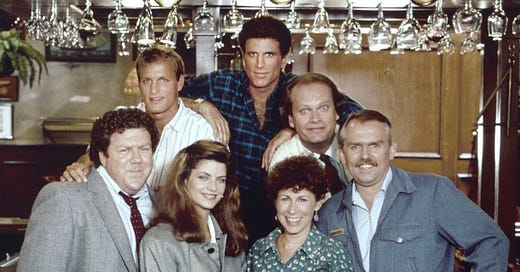

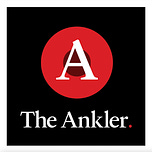



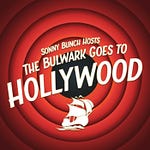
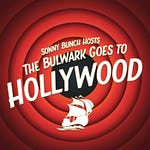
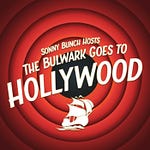
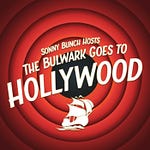


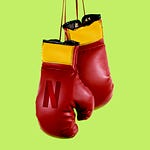
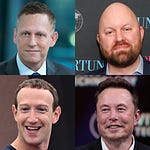
Share this post